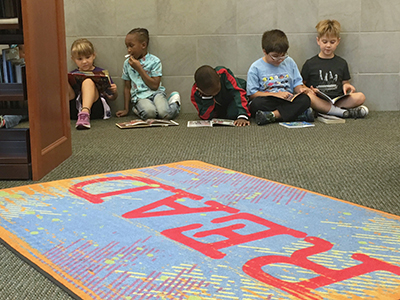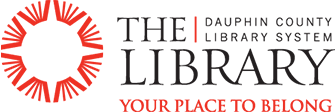
When children see themselves in books, they see their place in the community. But for literacy groups distributing books to Dauphin County children, putting diverse books in their hands can be challenging – and expensive.
Now, the Dauphin County Library System is leveraging its power to win grants and get bulk-purchase pricing, while those literacy groups are advising The Library on titles that expose young readers to excellence in diverse literature.
The initiative grew out of The Library’s ongoing effort to become, in the words of Executive Director Karen Cullings, “an organization that generates positive change for the community.” A powerhouse lineup of African-American literacy advocates convened because of their shared, laser-focused view on “literacy, The Library and inclusiveness,” says Cullings.
All said they were struggling to acquire books showing diverse kids dealing with relatable, real-life issues. In the book marketplace, titles with diversity in characters are limited in bulk quantities and less likely to be available in paperback, making them more expensive than non-diverse titles.
That’s when an idea came up.
“We buy a lot of books,” Cullings told the group. “We get a library discount. Maybe there’s a way we can all work together and leverage our discount and grant writing to make a difference.”
The group christened itself the Super Cool Book Club, now including representatives of the American Literacy Corporation, Tri-County OIC, Capital Region Literacy Council, and volunteer literacy advocates from organizations like The Kidney Foundation of Central PA and the American Literacy Corporation.
The club worked with The Library’s youth team to review titles and recommend appropriate acquisitions. The Library’s first grant application to PNC Charitable Trust succeeded, winning $4,000 for the literacy groups to spend on books for distribution to schools and community events.
Children who see themselves reflected in their books and inspirational stories learn to become independent thinkers and “know they are valued,” says Floyd Stokes, executive director of the American Literacy Corporation.
“If they never get exposed to this, there’s very little chance they will be inspired to reach farther,” Stokes says. “These books are extremely valuable for these children because there are a lot of images on television and on the internet showing them they are not valued.”
Super Cool Book Club member Barbara Thompson, retired director of multicultural recruitment and community affairs at Penn State Harrisburg, has gone “anywhere there are kids” to distribute books.
“We want children to have literature in their homes and something they can call their own,” she says. Plus, diversity in books fosters a new generation of creative minds, encouraging students “to want to write or to be illustrators when they see the possibilities.”
The Capital Region Literacy Council seeks diverse books for its annual back-to-school distributions, says board member Iris Brown.
“We try to get books that appreciate the students’ culture and their heritage, so they see themselves in that book and see their self-worth,” she says. “Children who see themselves in books feel, ‘This is me. I am here.’ When children don’t see themselves, they have no self-esteem. They don’t feel they belong.”
Home libraries can infuse literacy into family life. One study shows that reading together as a family has a stronger correlation to children’s achievement than parents’ education levels, says Cullings.
“We’re coming together and trying to put books in homes in a thoughtful, concerted way that’s going to have the best impact,” she says. “This is a valuable partnership in the community.”
Quality also matters, says Stokes. Buying the books of diverse authors devoted to excellence is “like voting with your dollars.” Without that economic incentive, skilled authors and illustrators might stop producing quality works. “The Library, by purchasing from people of color, is helping to support them and create their next books.”
The number of books by African-American authors have grown in recent years and putting their titles into the hands of young readers of all backgrounds helps foster insights into varied cultures, says literacy advocate Karen Love.
“Some prolific authors are telling stories that touch people’s hearts and help people see there is value in every culture,” says Love, a retired teacher who organizes Alpha Kappa Alpha sorority’s book giveaways and the annual African-American Read-In. “It’s an American story. That’s how I teach my children.”
The initiative is blossoming into a regular relationship that extends diverse voices into Library acquisitions and operations, says Cullings. The Library’s support helps nonprofit literacy groups stretch their resources and reach as many children and families as possible, adds Brown. “It was great that The Library came to us. They reached out to us because they knew the importance of diversity.”




